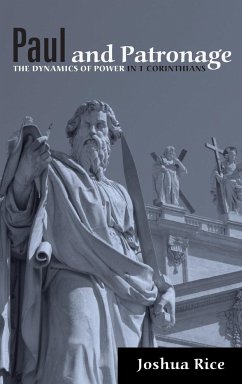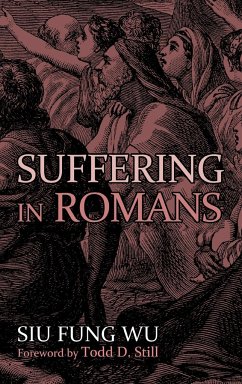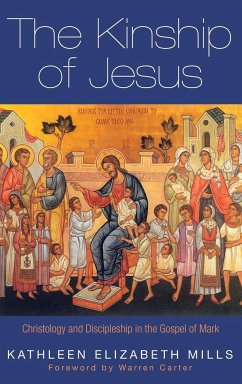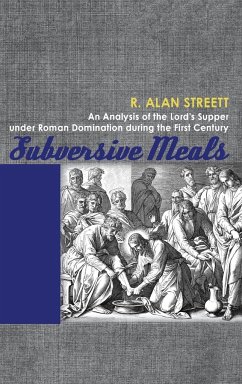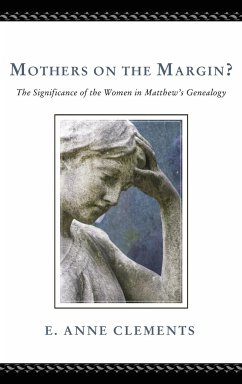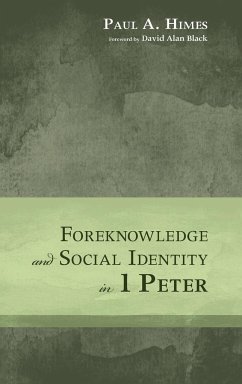
Foreknowledge and Social Identity in 1 Peter
Versandkostenfrei!
Versandfertig in 1-2 Wochen
35,99 €
inkl. MwSt.
Weitere Ausgaben:

PAYBACK Punkte
18 °P sammeln!
What is the meaning and significance of foreknowledge in the book of 1 Peter, and how does the concept relate to the circumstances of its first recipients? Himes attempts to answer these questions by examining the concepts of both foreknowledge and social identity within the first century and how they fit into the theology of 1 Peter. In the process of elaborating the concepts of foreknowledge and social identity, this study provides one of the first thorough examinations of the words prognosis and proginosko in the literature of the time period when 1 Peter was composed and circulated. Himes ...
What is the meaning and significance of foreknowledge in the book of 1 Peter, and how does the concept relate to the circumstances of its first recipients? Himes attempts to answer these questions by examining the concepts of both foreknowledge and social identity within the first century and how they fit into the theology of 1 Peter. In the process of elaborating the concepts of foreknowledge and social identity, this study provides one of the first thorough examinations of the words prognosis and proginosko in the literature of the time period when 1 Peter was composed and circulated. Himes argues that these words are linguistically relevant to how early hearers and readers would have understood the message of 1 Peter. In addition, this volume provides a thorough analysis of social-scientific criticism in 1 Peter, paying special attention to the various views about the social circumstances of the epistle's recipients. Finally, this book concerns itself with the biblical theology of 1 Peter, and with how the concept of foreknowledge functions as a word of comfort and hope to the beleaguered audience of this epistle. ""I am more than grateful to Himes for this significant contribution to biblical theology. It will undoubtedly fill an important gap in the literature. More significantly, perhaps it will serve as a salutary reminder that we Christians are little more than pilgrims and strangers--resident aliens--whose main concern ought to always be to interpret the gospel of salvation in ways that are relevant to the surrounding culture."" --From the foreword by David Alan Black ""Paul Himes's careful research in 1 Peter deepens our understanding of foreknowledge in relation to the sociology of early Christianity. For too long divine foreknowledge has been understood only as a theological statement disconnected from the difficult realities facing new Christians who resided in Asia Minor. Himes's work helps bridge the gap between theological and sociological analysis of this letter. Watch closely as he builds his case using insights from relevance theory, a helpful approach for any biblical interpreter."" --Gene L. Green, Professor of New Testament, Wheaton College and Graduate School, Norton, MA ""This work by Paul Himes is an excellent example of the merging of detailed lexical and sematic analysis with social scientific investigation and theological interpretation. He sets aside the often predetermining theological debate on the relationship between foreknowledge and foreordination to focus on the social identity of the original recipients and how they would have perceived the foreknowledge of God and its function in their circumstances. The result is a careful analysis that advances our discussion of the interpretation of 1 Peter and provides practical theological insights for the church today."" --David R. Beck, Associate Dean of Biblical Studies, Professor of New Testament and Greek, Southeastern Baptist Theological Seminary, Wake Forest, NC Paul Himes grew up as a missionary kid from Japan and is a professor of Biblical Studies at the Baptist College of Ministry in Menomonee Falls, Wisconsin. He received his PhD in the New Testament under Dr. David Alan Black at Southeastern Baptist Theological Seminary. This is his first book.







